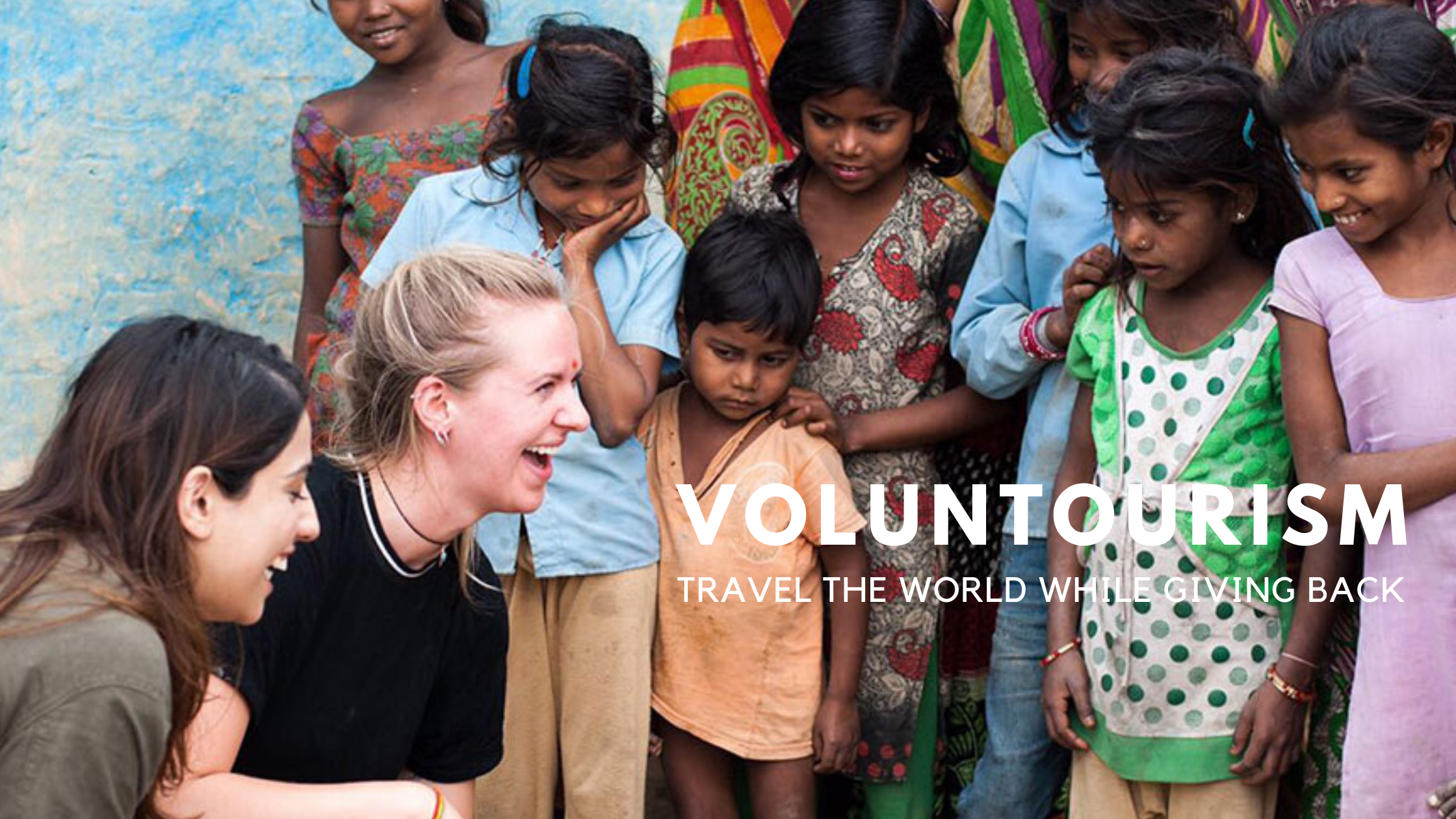By Terpsi Vasilopoulou,
According to the United Nations Volunteering Program and the International Labour Organisation, over 1 billion people choose to conduct volunteer work today. Besides the immense benefits volunteering has on us as individuals, both domestic and international communities seem to be highly dependent on it nowadays, it’s empowering effect to the community’s phychology and the support it is providing individually to the ones in need. Since volunteering has become so popular, different ways of practising it have been developed by a variety of organisations and regarding a plethora of sectors (humanitarian, environmental etc.) in order to attract as many people as possible and aiming at the maximum possible support that can be provided. One of those methods that is lately becoming more and more popular is volunteering tourism.
Volunteering trips also known as voluntourism, are a form of tourism in which travelers participate in voluntary work typically of a charity, to help communities or the environment in the places they are visiting. The period during which someone can be a part of such programmes varies from one week to nine months or even more, depending of course on their status and impact they want their work to have on each place. Volunteers of this kind range in age, skills and origin, creating variable groups which can benefit the welcoming communities in a multitude of different ways and sectors. Usually volunteering tourists are in charge of their travelling expenses and also pay a fee to the NGO or volunteering company if they are not already subscribed to it, in order to support their cause and to also cover their living expenses while they are there. However, free programmes do exist as well, accepting a shorter number of participants though and usually having a longer duration close to 6-9 months, where volunteers can travel to support an organisation’s cause without a financial burden.

Voluntourism is a great way for NGOs and volunteering organisations to support and promote their cause and initiatives, activate people to help others in need and help communities develop and better their standard of living. In the past decade, schools, hospitals, aqueducts and more have been built where there is a need, solely thanks to the help of volunteers while thousands of people all over the world have been educated and trained in order to acquire different sets of skills. Local communities are not only supported by the field work tourist-volunteers are conducting in their cities or villages, but the local markets also have a greater profit from the tourists’ buying souvenirs, eating in local restaurants, organising day trips on their days off and hiring the locals and more. At the same time, it is an opportunity for members of different cultures and backgrounds to interact, exchange their experiences and broaden their horizon and knowledge while altering their view of the world.
Despite the benefits of such volunteering programmes, many have also voiced their concerns about them. Studies have been written supporting that such programmes are in fact more harmful to the welcoming communities rather than beneficiary. They have been characterised as unethical, irresponsible and unsustainable, catered to fulfil western desires rather than local needs and perpetuating the idea of the “white saviour complex”. Furthermore, ever since such initiatives stopped being addressed to just skilled professionals, volunteers providing unskilled labour might create more work to the places they are visiting on the long run. Last but definitely not least in most of these volunteering cases there is no longer term commitment involved. “What are volunteer tourists, only visiting for a short period up to a few weeks, realistically able to address in this time and setting?”, skeptics ask. While they can do good, a lot of places benefit much more from long term volunteers most of them originating from the community itself rather than a group of tourists eager to fix things and that’s one of the most supported arguments by people on this side of the scope.

When examining a matter or action of this sort it is true that there are always two sides to look at. However, I personally believe that the benefits of voluntourism are much stronger than its flaws. It is a great opportunity both for the people who want to help and for the ones in need, for work to be conducted in a much lower budget, while volunteers can also work as a channel to spread the word regarding the reality they are faced with, after their return home and encourage more volunteer work. At the end of the day volunteering tourists do much more good than harm and such initiatives definitely should be supported.




